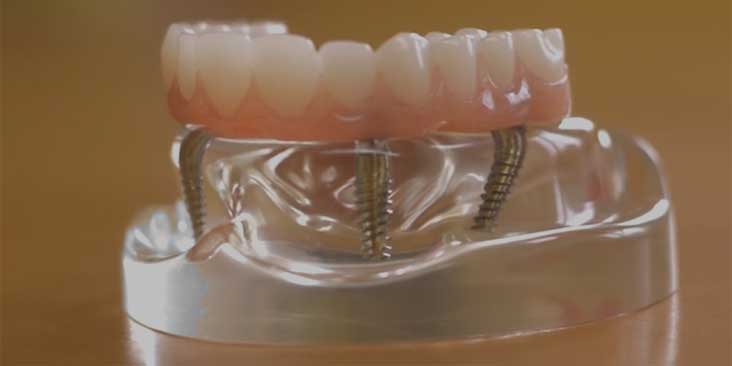Dental Implant Insurance
Dental implants are the gold standard for replacing missing or failing teeth. Whether you need to replace one tooth, multiple teeth, or all your teeth, or you want to upgrade a bridge or a denture, the experienced dental implant teams at Dental Associates will help you each step of the way.
Insurance plans can be confusing and it’s often difficult to know exactly what your benefits are. Overall, it’s important to check with your insurance provider and with our clinic teams to ensure you understand your coverage.
Watch this video to learn about dental implant insurance:
Insurance Facts for Implants
At Dental Associates, we believe in being transparent so you know what to expect with both your care and coverage. Read on to learn how different facets of dental implant insurance and even medical insurance can help make the cost of implants more affordable.
Implant coverage
Dental implant insurance coverage will help make the cost of dental implants more affordable. If a patient’s insurance plan includes implant coverage, it will designate a certain percentage that the insurance company will pay, up to the annual maximum (more information about annual maximums below).
Please keep in mind that due to a missing tooth clause, some insurance plans won’t pay for the replacement of a tooth that was missing before the policy was in effect. For example, if a patient has congenitally missing teeth (teeth that have been missing since birth) the missing tooth clause may apply. Be sure to check with your insurance company to verify coverage and plan details.
Treatment timing
A dental implant contains three parts: the implant, the abutment, and the crown. All three parts are considered separate procedures, so if you schedule your treatment by completing one part of the implant in one benefit year and another in the next year, you can maximize your insurance benefits. Keep in mind that most recovery times for implant procedures is three to six months, so you’ll need to take this into consideration when scheduling all parts of the implant.
Insurance benefits renewal
Depending on the plan, insurance benefits either run by benefit year or by calendar year. It’s important to note when your benefits reset so you can maximize your benefits by scheduling treatment to best align with your benefits renewal.
Dental Implant Insurance Limitations
Dental Associates will help you maximize your insurance benefits, but please note there may be some limitations to coverage including, but not limited to, the following.
Annual maximums
Be aware that dental insurance plans have a maximum amount they will pay per benefit year (often between $1,000 and $2,000). This is important to keep in mind, as most dental implant procedures will exhaust these maximums quickly.
Alternate benefits
In some dental insurance plans, there’s an alternate benefits stipulation stating that certain dental procedures must convert to a less expensive treatment. The patient can still elect to receive more expensive treatment, but they’ll be reimbursed for only the amount of the procedure that 1) is less expensive and 2) serves the same function.
For example, some insurance plans will cover a partial denture instead of a dental implant. If this is the case, the patient can move forward with the procedure the insurance will pay for, or they can elect for the more expensive (but longer lasting) procedure and cover the difference.
Medical insurance
Though rare, some medical insurance will consider coverage for implants. In most cases, medical insurance will pay coverage toward a dental implant if it’s needed due to an accident, but some will consider it overall. Please contact your medical insurance provider to determine if any coverage is available for dental implants.
CarePlus Dental Plans
If you don’t have dental insurance or if you have insurance and would like to learn if you can save more on dental care, ask about CarePlus Dental Plans at your next appointment. CarePlus offers standalone dental plans that can lower your out-of-pocket cost for not only dental implants but routine and specialty care as well. Learn more about CarePlus Dental Plans.
Dental Financing for Implants
Financing through CareCredit can help make the cost of dental implants more affordable. CareCredit may be available to you, including no interest if your balance is paid in full within the end of the promotional period of up to 24 months. Deferred interest may also be available. (Monthly payments are required. Subject to credit approval.) Learn more about Dental Financing.


